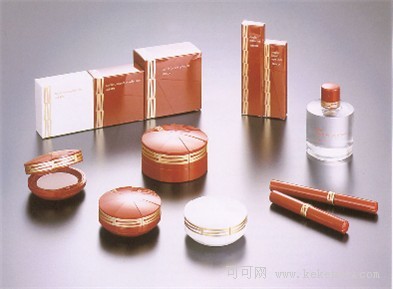A:It is estimated that on any given morning, the average person uses up to 20 cosmetic products before they leave the home. But is it possible that we are exposing ourselves to harmful chemicals that can affect our health? Author and self-proclaimed make-up addict Stacy Malkan is challenging the cosmetics industry by releasing her book, Not Just a Pretty Face, the ugly side of the beauty industry. And she joins us in our studio with more. 
A:Welcome! (Hello, thank you.) This is alarming Because everybody, men and women, we use all kind of products. Let's take a look at this list that we put together from your book, some of the problems that we will find. We're talking lead in lipstick, some of the other things you have as phthalates in lotions, neurotoxins in the mascara we use and coal tar in shampoo. First of all, why is this in there and how bad is this?
B:Well, many products, unfortunately, and we are talking about shampoos, deodorants, lotion, make-up, even baby shampoos, contain carcinogens, hormone-disrupting chemicals, chemicals that have never been tested for health effects. And we're putting these chemicals on our bodies, in our hair, on our babies, day after day, and the toxic exposures are adding up.
A:Ok, and what it will do in to us?
B:Well, we see, unfortunately as we know, many increases in er, certain types of cancer, infertility, learning disabilities, there's a lot of evidence showing that chemical pollutants are contributing to those increases in chronic diseases. So we think that it's a good idea to reduce toxic exposures wherever we can, you know, starting with the products we are putting on our bodies.
A:OK, now let's talk about some of the things that you brought. (Yeah.) Because, you know, here's the, that shampoo there (Yes.) that we probably all used at one time or another.
B:Yes, we analyzed a dozen popular baby shampoos and children's bubble baths and found that found all of them contained one,four-dioxin which is a probable human carcinogen according to the EPA, was not listed on the labels. Companies don't have to tell us about contaminants or fragrance chemicals. So often toxins that aren't on the label are in the products. This is a very cute product, you know, obviously meant to appeal to children, (bubble bath, ah-ha. ) has a warning label right on it that says prolonged exposure may cause urinary tract irritation. (Let me turn this around, yeah, I haven't seen that before.) and actually many children's products have that. (Really?) You dont really want kids sitting in the tub for a long period of time with these chemicals.
A:OK, you know, I'm looking at this choking hazard warning sign, I don't think I would even notice there's the other one. OK.
B:And I found this, you know, at ground level, where a child will find it and grab it not let go of it.
A:Ok, lipstick, we wear it every day!
B:Well, lipstick, yes, we found 61% of lipsticks contain lead, including some high-end brands, this is a $24.2 tube of lipstick that definitely does not need to contain lead, (Ok, and finally these products) er, some of the more toxic products, very disturbingly, are targeted at women of color. We see skin whitening creams, this has hydroquinone, highly toxic, banned in Europe, legal, er, in the US. And then, here's another example of a product hair relaxer, targeting children. You know, that's a five-year-old on the cover.
A: Now I have to ask you have there been scientific studies to prove to us that these are harmful to us because, we are, were just going to take your word for this, but I'm sure there are some people who would say this is not true.
B:Yeah, well, what we know is that some of these chemicals are unknown to cause cancer, health effects. You know, the companies will say it's just a little bit of toxin (Right.) in the baby shampoo. Yes, it's true but we're using these products everyday and then the exposures are adding up.
A:Well, what about the FDA? what about the EPA? Isn't somebody regulating this industry?
B:Well, most people are surprised to find out NO. Companies can put any chemical nearly into personal care products, no safety testing, without telling us everything that's on the label. So, this industry needs to be regulated. And that's what we're working toward.
A:All right, raising awareness. OK, what can we do if we don't want to use any of these. I mean if you want to use the right stuff? What do you do?
B:Ok, simplify. Looking for, er, look at product labels, look for fewer chemicals, try to avoid synthetic fragrance, we also have a database where you can look up products called "Skin-deep free database" at safecosmetics.org. So, you know, there are tocsin resources for us to do our own research and until the industry is regulated, that's what we have to do.
A:Ok, I know you're wearing a little foundation, I don't see your lipstick on it. Is that on purpose?
B:Well, I do wear makeup, I love makeup. I believe all makeup can and should be safe.
A:OK, Malkan, and you, we have some help now. So, if you'd like to know more about all of this, you can go to our website abc7chicago.com, click on "see it on TV" and the website you mentioned will be there too? Thank you very much.
B:Yes, safecosmetics.org.
A:And you were speaking of the Sunday event, which is also on our site.
B:Yes, Sunday at the Green Festival, check out the Green Festival Sunday at noon.
A:OK, thank you so much for joining us today.
B:Thank you.
【词汇注释】
make-up n.构成
ugly a.丑陋的
phthalate:【化】邻苯二甲酸盐
neurotoxin:【化】 神经毒素
deodorant:【化】 除臭剂; 芳香剂
carcinogen:n. 致癌物质
urinary tract:【医】 泌尿道
hydroquinone:【化】 氢醌; 对苯二酚












